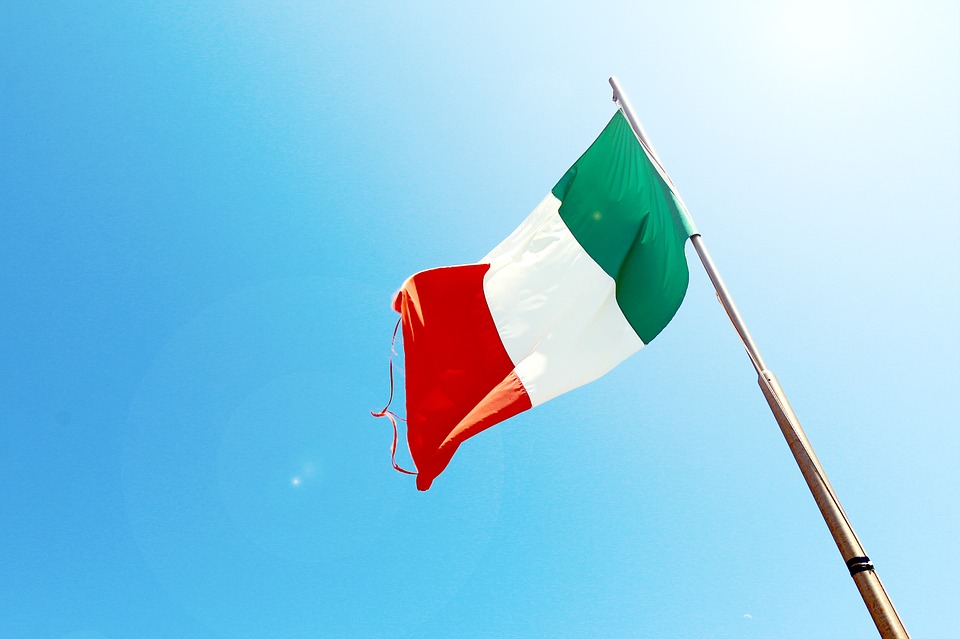According to official reports in major editions of the country, Italy will hold a general election on March 4. The five-year term of office of the parliament expires in May.
Given that populist parties have made progress but not gained power in other major European countries, recent polls and regional election results indicate that the League of North anti-immigrant party in Italy has the right to act in a coalition with the center-right party Forza Italia, supported by Premier Silvio Berlusconi.
However, whoever wins, they will have difficulties in overcoming economic stagnation with reducing the debt burden and will have to deal with the extremely unstable banking system. There are high chances that none of the parties will get a majority in the parliament, which can aggravate instability.
Right-wing parties have been gaining momentum recently. Last month, Berlusconi’s alliance won, receiving 40% of the vote in the local elections in Sicily. This was before the start of the activity of the "Five-Star Movement" party and the ruling center-left Democratic Party led by former Prime Minister Matteo Renzi.
Sicilian elections have damaged popularity of the Democratic Party at the national level, and currently it ranks third in public opinion polls, following the party "Five-Star Movement" and the center-right parties Forza Italia, the League of the North and the Brothers of Italy, which form Berlusconi’s alliance. It seems that the most likely situation is that no party will be able to get a majority in the parliament, and this will be followed by complex coalition talks.
Berlusconi was expelled from the Italian parliament in 2013 after allegations of financial fraud. Currently, he is appealing to the European Court of Human Rights with a request to lift this ban.
Italy is facing many economic problems that have influenced the country for many years. HSBC recently called Italy the "problem child" of Europe, saying that 2018 will be critical for the country and the continent as a whole.
It is assumed that the law on the budget of Italy for 2018 will reduce the permanent deficit, but there is very little time for the parliament to consider it until the end of the year. Meanwhile, the banking sector of the country is still shaky, even after the government intervened to keep the oldest bank of Italy, Monte dei Paschi di Siena, from collapse.
The country has the second largest debt burden in the euro area after Greece, which amounts to 135% of GDP. This makes it vulnerable in the face of higher borrowing costs, as the ECB reduces its incentives and ultimately considers raising interest rates.
In the past, the "Five-Star Movement" party, and some extremely center-right parties suggested that Italy hold a referendum on its membership in the euro zone. Their positions on this issue are not so clear right now, but if they approach the authorities, this may cause investors' concern about the sustainability of Italy's debt burden and its prospects for economic recovery after years of stagnation.
source: businessinsider.com
Given that populist parties have made progress but not gained power in other major European countries, recent polls and regional election results indicate that the League of North anti-immigrant party in Italy has the right to act in a coalition with the center-right party Forza Italia, supported by Premier Silvio Berlusconi.
However, whoever wins, they will have difficulties in overcoming economic stagnation with reducing the debt burden and will have to deal with the extremely unstable banking system. There are high chances that none of the parties will get a majority in the parliament, which can aggravate instability.
Right-wing parties have been gaining momentum recently. Last month, Berlusconi’s alliance won, receiving 40% of the vote in the local elections in Sicily. This was before the start of the activity of the "Five-Star Movement" party and the ruling center-left Democratic Party led by former Prime Minister Matteo Renzi.
Sicilian elections have damaged popularity of the Democratic Party at the national level, and currently it ranks third in public opinion polls, following the party "Five-Star Movement" and the center-right parties Forza Italia, the League of the North and the Brothers of Italy, which form Berlusconi’s alliance. It seems that the most likely situation is that no party will be able to get a majority in the parliament, and this will be followed by complex coalition talks.
Berlusconi was expelled from the Italian parliament in 2013 after allegations of financial fraud. Currently, he is appealing to the European Court of Human Rights with a request to lift this ban.
Italy is facing many economic problems that have influenced the country for many years. HSBC recently called Italy the "problem child" of Europe, saying that 2018 will be critical for the country and the continent as a whole.
It is assumed that the law on the budget of Italy for 2018 will reduce the permanent deficit, but there is very little time for the parliament to consider it until the end of the year. Meanwhile, the banking sector of the country is still shaky, even after the government intervened to keep the oldest bank of Italy, Monte dei Paschi di Siena, from collapse.
The country has the second largest debt burden in the euro area after Greece, which amounts to 135% of GDP. This makes it vulnerable in the face of higher borrowing costs, as the ECB reduces its incentives and ultimately considers raising interest rates.
In the past, the "Five-Star Movement" party, and some extremely center-right parties suggested that Italy hold a referendum on its membership in the euro zone. Their positions on this issue are not so clear right now, but if they approach the authorities, this may cause investors' concern about the sustainability of Italy's debt burden and its prospects for economic recovery after years of stagnation.
source: businessinsider.com





